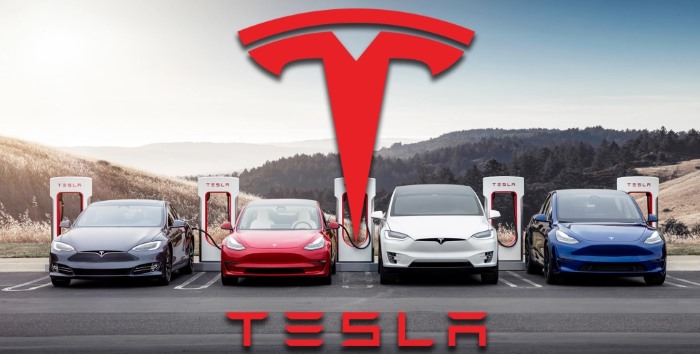Technology
Tesla Anticipates Sluggish Expansion in 2024
In a recent financial disclosure, Tesla, the electric vehicle juggernaut, reported a remarkable twofold surge in net income for the fourth quarter of the previous year. However, the celebration is tempered by a substantial 47% decline in operating profits, signaling a complex financial landscape for the company.
One-Time Tax Windfall
Tesla’s fourth-quarter net income soared to an impressive $7.9 billion, largely attributed to a one-time tax benefit. While this financial achievement is noteworthy, the simultaneous dip in operating profits raises concerns. Additionally, the quarterly revenue falling short of analysts’ expectations raises questions about the company’s overall financial health.
“Tesla’s $7.9B Q4 net income is impressive, but operating profit dip and revenue shortfall raise concerns,” said Wall Street Journal.
Cautious Outlook for 2024
Amidst the financial highs and lows, Tesla issued a cautious warning about its growth prospects in 2024. The company finds itself in a delicate position, caught between two major growth phases, with the potential for notably lower growth compared to the previous year’s impressive 38% increase in annual vehicle deliveries.
Contrasting Fortunes
This subdued growth outlook is a sharp departure from the optimistic days when Tesla seemed unstoppable, with surging demand and robust profitability. Now, the electric vehicle giant grapples with challenges such as softening demand, narrowing profit margins, and increased competition within the electric vehicle market.
Elon Musk’s Ultimatum
Complicating matters, Tesla CEO Elon Musk recently issued an ultimatum regarding X. He expressed his preference to manufacture products elsewhere unless he secures approximately 25% control of Tesla. Currently holding a 13% stake, Musk’s remarks add an additional layer of uncertainty to Tesla’s future trajectory.
Shifting Tides in the Electric Vehicle Market
The financial challenges at Tesla coincide with broader shifts in the electric vehicle market. Hertz’s decision to sell one-third of its electric vehicle fleet, citing repair costs and resale value concerns, marks a significant reversal from its previous commitment to Tesla. Additionally, Morgan Stanley recently downgraded Tesla’s price target. This downgrade reflects a broader perception of reduced growth and narrower profit margins in the electric vehicle sector.
Operational Adjustments and Global Challenges
In response to these challenges, Tesla has initiated price cuts in China and Europe. Simultaneously, the company declared a temporary suspension of nearly all production in Germany. This decision was made due to parts shortages associated with the conflict in the Red Sea. These operational adjustments, coupled with global uncertainties, underscore the evolving landscape for the world’s most valuable automaker.
“Tesla’s strategic price cuts in China and Europe reflect adaptability amid supply chain disruptions and geopolitical uncertainties.” according to Barron’s.

